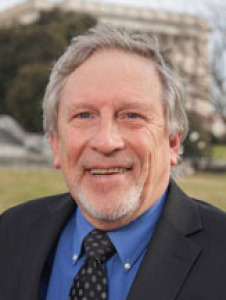WASHINGTON, Feb. 18, 2015 – A battle looms on Capitol Hill over transportation: Where to get the revenue to build and maintain the nation’s highways, bridges, transit systems and how to divvy up those federal dollars?
But there’s broad agreement on one point: Congress will be forced to boost revenues for transportation programs unless it wants to throttle projects that states and local governments are planning for this year. That’s because the federal fuel taxes (18.4 cents a gallon for gasoline); 24.4 cents for diesel haven’t changed since 1993 and now bring in 30 percent less than the Treasury is already spending on all highway and transit programs. Lawmakers have been running such shortfalls for years, passing just short-term program extensions while depleting the trust fund fed by fuel taxes. With the Highway Trust Fund now empty, and the emergency $11 billion Band-Aid Treasury applied last year to be exhausted in May, Congress is under a lot of pressure to act.
Another major area of agreement is the importance of finally passing a long-term bill, after nine short-term fixes since 2009 that have ended up waylaying local and state efforts to do major transportation projects.
“More short-term extensions are not the answer,” says Sen. James Inhofe, the Oklahoma Republican who chairs the Environment and Public Works Committee, which oversees highway projects. He estimates that 30 percent of trust fund dollars are dribbling the nation’s transportation projects out piecemeal rather than doing them in an orderly way.
Most lawmakers, state governors and transportation bosses, along with lobbyists for truckers and farm groups, take a similar view. Jon Samson, an agricultural shipping specialist for the American Trucking Association, does not want to see “just a one-time shot – but something we can rely on in the future” to supply funds needed for the U.S. transportation system.
Nonetheless, the Obama Administration, plus a mix of liberal and conservative lawmakers from senators Barbara Boxer, D-Calif., to Paul Rand, R-Ky., propose to restore the exhausted trust fund by cutting the tax rate on U.S. corporate profits now held abroad. Such a change would create incentive to repatriate those profits and generate from $120 billion to $240 billion in revenue, depending on the terms of the tax changes. That would replenish the trust fund for several years, though Congress would then face a depleted trust account.
Using such a tax ploy to pump up the transportation deficit “is definitely on the table” in Washington, despite the broad demands for a long-term funding solution, says Andrew Walmsley, transportation analyst for the American Farm Bureau Federation. But the immediate question, he says, is whether Congress will agree on any funding mechanism at all before the transportation purse goes empty in three months. Lawmakers are already suggesting another short-term funding extension may be needed before a long-term revenue plan is hashed out.
House Speaker John Boehner, R-Ohio, says he’s determined to fully fund transportation projects and would raise more revenue via taxes on expanded off-shore oil drilling. A staffer for Inhofe says to expect Senate Republican leaders, including members of the Finance Committee, which oversees taxes, to produce a long-term funding plan. And because most lawmakers view user fees, such as the federal fuel taxes, as a preferred way to generate needed revenue, some type of hike in those taxes will likely play a part in the new transportation bill.
As it has for years, Congress will likely direct about three-fourths of trust fund money to highways and bridges, largely ignoring the Department of Transportation’s budget, which would shift more spending to transit and rail infrastructure, high-speed rail systems, and road and rail safety. Rural farming states, which have small tax bases to support expansive road systems, want most of the funds directed to highways.
States, meanwhile, which collect far higher fuel taxes than the federal ones, are also running short of revenue for the same reasons as the nation is: Fuel efficiency of cars and trucks keeps improving, so excise taxes raise less. Besides, economic growth is finally picking up speed, boosting demands on transportation infrastructure: The American Trucking Association’s index for tonnage hauled on U.S. highways, for example, tied all-time highs in November and December, and was up by 3.5 percent for 2014 over 2013. ATA estimates delays on U.S. interstate highways cost truckers $9 billion a year in labor and wasted fuel, and that cost will only increase as traffic congestion worsens.
Recent years’ mounting needs and funding deficits have put state legislatures in search of more in-state revenue beyond what Congress might provide. Eight states have hiked fuel taxes in the past two years. Now, the Minnesota Legislature is considering multiple sources: a penny added to the state sales tax, increases in vehicle license fees, plus a 6.5 percent wholesale gasoline tax on top of its 31-cent a gallon now at the pumps. Legislatures are also mulling fuel tax hikes this winter in Iowa, Georgia, Louisiana, South Dakota, Utah and perhaps elsewhere.
Sean Sloan, transportation policy expert for the Council of State Governments, says some states are drafting bond issues to fund highways and other needed infrastructure, and others need the continued flow from the U.S. Highway Trust fund just to meet payments on past transportation bonds.
#30
For more news, go to www.agri-pulse.com.

